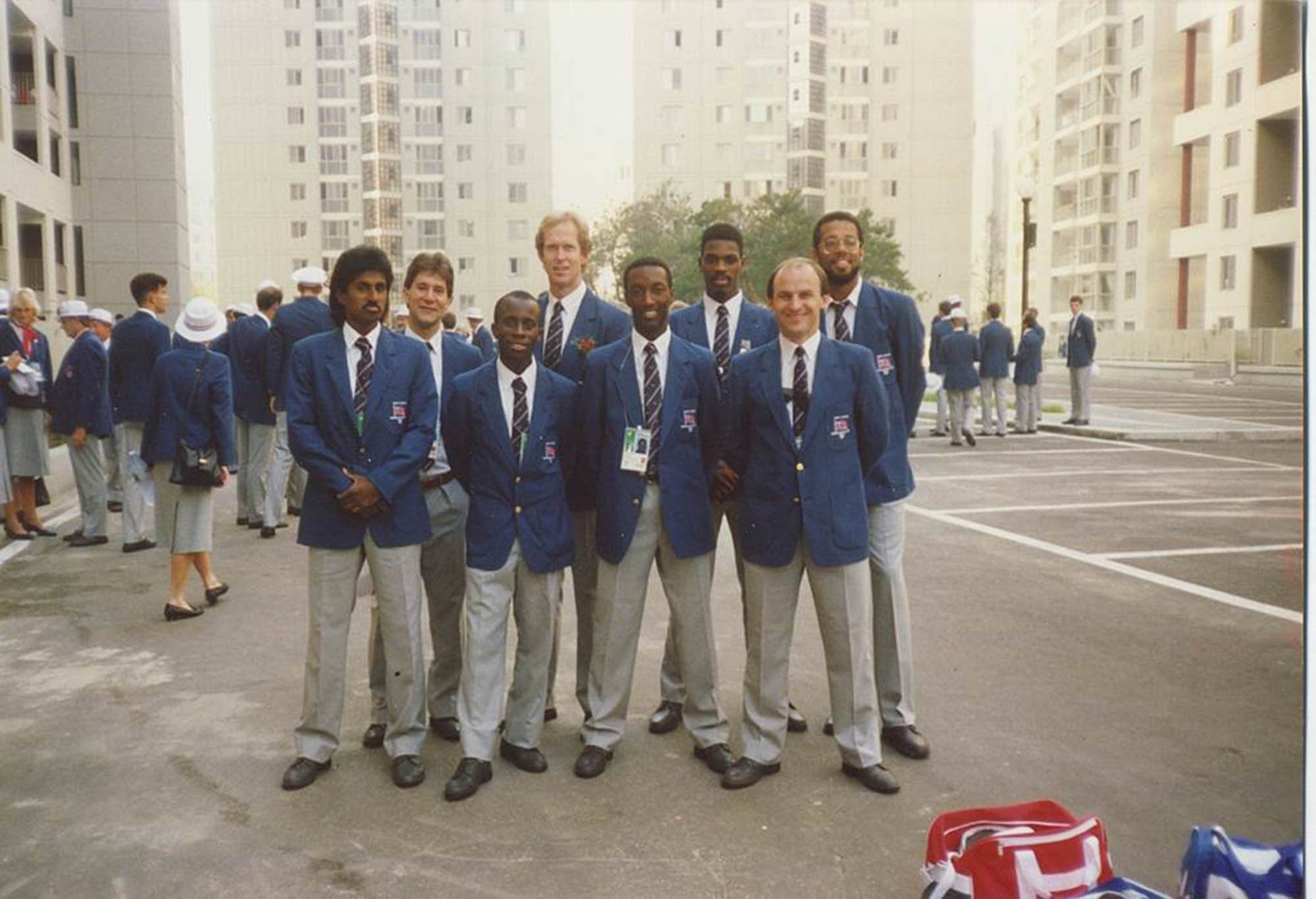Ralph Minott is a world-class martial artist who once represented Great Britain at the Olympics. He is also the development director of Calthorpe Estates, a 640 hectare parcel of prime real estate on the edge of Birmingham city centre. Here he explains why the two roles may have more in common than you might think.
When trying to assess why Birmingham’s Calthorpe Estate has been so successful for more than 300 years, Ralph Minott has a theory.
“I like to describe the things that have shaped the Estate as examples of fortuitous genius” said the development director, who this year marked a decade working for the historic estate.
“We are hugely successful at what we do, but when you reflect on the Estate’s history, you would be forgiven for pinching yourself. Some amazing decisions have shaped the company and I often look over old files, leases, indentures and land assemblies, and think wow, what genius!”
The first to epitomise this ‘genius’ was Sir Richard Gough. He acquired the Estate’s first tract of land in 1717 on the western fringes of Birmingham, which at that time was one of the world’s fastest growing cities and the engine of the industrial revolution.
The Estate steadily grew around Edgbaston Hall, a manor house landscaped by the great Capability Brown, and eventually extended to more than 640 ha – an oasis of green in a city of factories, smoking chimneys and back-to-backs.
Today the Estate is still owned by Sir Richard’s descendants, the Anstruther-Gough-Calthorpe family. While it has evolved significantly over the past three centuries, the Edgbaston district of Birmingham remains one of the UK’s most celebrated garden suburbs and affluent parts of the city.
Now, as then, the Estate remains free of any heavy industry, but in the 1950s it was another of those “geniuses” who made a significant contribution to the direction of the Estate; the celebrated architect and masterplanner, John Madin.
“In 1958 the family engaged with the visionary John Madin, to see how they could change the evolution of the Estate to keep pace with the fast changing city of Birmingham,” said Ralph. “When you look at the Estate up to the late 1950s it was essentially houses and fields, so the result of the John Madin commissioned masterplan was quite transformational. It is spooky how, in the absence of a formal planning policy, the plan has largely been realised, and an example of how big ambitions can shape minds.”
Madin’s masterplan envisaged four districts on the Calthorpe Estate, three residential and one commercial. While 25% of the Estate remains green space, it now boasts more than 330,000m2 of commercial space, 26 nurseries, schools and universities including the world-class University of Birmingham, internationally renowned arenas for cricket and tennis, as well as a range of elegant housing from every era of the past three centuries.
Fortuitous and notable as the genius of yesteryear has been for the Estate, it has continued to thrive in an increasingly competitive environment, during Ralph’s decade as development director and under the stewardship of chief executive Mark Lee.
Ralph was appointed by Mark’s predecessor Richard Allen in 2008, in the midst of global economic turmoil. It was also a period of relative instability internally, with four development directors having come and gone over the preceding three years.
Though originally a chartered quantity surveyor by trade, and hailing from inner city Nottingham, it was his previous 20 years of operations-focused development experience where Ralph offered a very different profile to his predecessors, and brought a world view that has been so important in his approach at Calthorpe Estates.
Ralph explained: “My parents arrived in the UK as Commonwealth citizens straight into careers as a nurse and an electrical engineer. Two years later, I was in a single parent family with three brothers, who my mum brought up whilst working full-time. She worked for the NHS for 50 years and insisted that we were studious and positive. Her mantra was no excuses.’’
After studying at Trent Polytechnic, Ralph became a chartered QS in 1985. Over the next 20 years, his career progressed from development manager at a company that developed turnkey care homes for BUPA, to jointly founding and developing one of the UK’s best-known nursery businesses of its time, Leapfrog Day Nurseries. He took it from start-up to sale, moving to its acquirer Nord Anglia Education as group property director.
Along the way he credits a handful of people who shaped his career – a first boss who taught him the commercial side of construction; Leapfrog’s Chairman from whom he “learnt what good looked like”; his first CEO at Calthorpe Estates who empowered excellence, to his current CEO’s lateral thinking.
They are all lessons that have served Ralph well over the past decade as he helped transform the commercial performance of Calthorpe Estates, delivering a range of landmark schemes.
He said: “When I first joined the company, I was given some development sites and told to make them happen! One of those sites was the old BBC Pebble Mill Broadcasting Centre site, which had been earmarked for a university science park.”
Ralph recounts a fact-finding trip to Cambridge. Here, he had an epiphany that would have a huge impact on both Pebble Mill and Calthorpe Estates.
“At the main entrance of Cambridge Science Park the sign said ‘Science since 1970’. So much of the park’s development still had to be delivered, 40 years on. I thought that five years after outline planning approval at Pebble Mill we still had a piece of dirt on a main road out of Birmingham. If Cambridge is nowhere near complete at 40 years, then we had no chance in my lifetime of realising our own site. From there I knew we needed to find something else that was going to make the site work.”
The result of this shift was to get speculative planning permission for a 150,000 sqft medical facility, which would complement the Queen Elizabeth Hospital Birmingham, that was under construction one mile up the road. Outline planning was secured in 10 weeks in October 2010, and by November 2011 Calthorpe Estates had secured a 130-year long lease with Circle Health for a private hospital. This became a catalyst, attracting Birmingham’s Dental Hospital and School of Dentistry to the area, and helping to fuel the growth of Edgbaston Medical Quarter.
It is this catalyst element that Ralph enjoys. “I think there is a perception that Calthorpe Estates does not have to make a return on their developments, but it’s not true,” he said. “My aim is to balance schemes that will enhance the Estate over the long-term, create successful places and deliver a return for trustees. A truly successful development should create self-perpetuating means for reinvestment and should commercially perform.
“The Estate will be here for another 300 years, so you have to be able to make sustainable decisions for the long-term. This calls for real strategic thinking, not only for the good of the business but also the community.
While his upbringing gave him the inspiration to achieve, and his career record brought him to the attention of Calthorpe Estates, another fortuitous event had an important influence on Ralph’s life. While studying at Trent Polytechnic he had some spare time on Wednesday afternoons and wanted to find a way to keep fit.

Ralph Minott with the rest of the Taekwondo squad for the 1988 Olympic Games in Seoul

Ralph Minott in competition
“When somebody walks through my door, I want them to succeed. I try to engender a belief that anything is possible.”
“In October 1978 I took up Taekwondo and it has defined me significantly,” said Ralph. “Taekwondo’s five tenets are Courtesy, Integrity, Perseverance, Self-control and Indomitable Spirit, which have become my life’s ‘Bible’. When the odds are against you, that indomitable spirit kicks in, but patience and perseverance are also key.
“I’ve taught Taekwondo for over 33 years in the inner-city areas I grew up in, keeping an identity with communities quite different to the Estate I work in. When somebody walks through my door, I want them to succeed. I try to engender a belief that anything is possible. My most important dictate is ambition.”
It is this ambition that saw Ralph compete for Great Britain in the 1988 Seoul Olympics. To this day, he remains the only Taekwondo player (now a 7th Dan Master) to have competed as a GB International in all the Taekwondo sport systems. Ralph likens that to someone being an international badminton and tennis player.
“As an international sportsman, it is impossible to describe the challenges you go through or that feeling of achievement,” he said. “Those feelings; the drive, the fear of failure, the sacrifice to compete against the best in the world. Then, standing on top of that podium, thousands of miles away from home and listening to the national anthem – it is indescribable.”
Ralph made it to the quarter finals in Seoul, but it was the overall experience rather than the fighting that he remembers most vividly today. “To be selected after beating the best fighter in the country, someone technically better than me, echoed that indomitable spirit and belief. To make the team was an incredible experience,” he said. “You turn up at Heathrow Airport as part of the Olympic team and you are sat on a jumbo jet next to your sporting heroes, the likes of Steve Cram and Linford Christie – it really was surreal!”
Ralph is still as passionate today about Taekwondo as he was when he first set foot in a dojang almost 40 years ago, and a decade into his time at Calthorpe Estates his ambition still burns as brightly as ever to create developments that are sustainable and commercially successful for many years to come.
To that end Calthorpe Estates recently commissioned Broadway Malyan’s urbanism team to examine the regeneration opportunities on the Edgbaston estate, predominantly around the 36-ha commercial centre that sits closest to Birmingham city centre and Five Ways.
While the Estate’s commercial quarter has undoubtedly been a successful growth area over the past 60 years, Ralph is under no illusions about the need to continue to challenge and innovate to ensure it remains on the right footing and a critical hub for the future.
“Since 1958 more than 330,000m2 of commercial space has been created but we have to accept that the way people work has changed,” said Ralph. “Already we are only seeing desks for 70% of a prescribed workforce in new offices and in 50 years this change will be even more evident.
“If we are going to continue to thrive as a commercial location, then transport and the extension of the Metro network to Edgbaston will be a real catalyst for change. With our office rents 25% lower than the prime city centre, the opportunity to get a direct link to the HS2 line in 15 minutes, and the vibrant lifestyle offer, our commercial space will be a no-brainer.
“This is a hugely exciting period for Calthorpe Estates and this project will help define it for the next half a century and beyond.”
For Ralph, it is the potential in everything that continues to excite and drive him, whether that is for the Calthorpe Estate, his colleagues, its consultants, customers, or those people closest to him.
He said: “I say this to my three boys a lot and I genuinely believe it – everybody is great at something but few people find what that is. If you are lucky enough to find it then make sure that the sky’s the limit.”
That he sees as so true of Calthorpe Estates.

